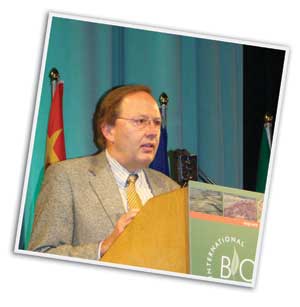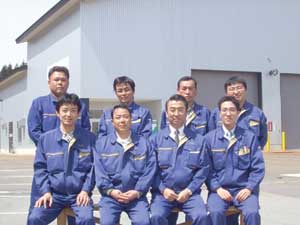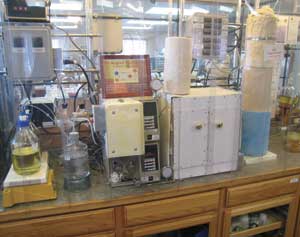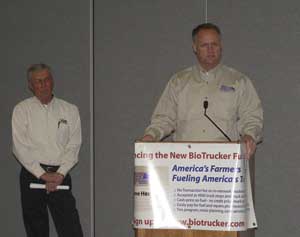June 2008
Featured

Biofuels in the Future
By Tom Bryan
Using the world's best farmland to grow biomass for fuel can lead to indirect land-use changes that accelerate global warming and increase competition for food worldwide-but that's only part of the story, said three experts at the International Biomass '08 Conference & Trade Show held in April in Minneapolis.

Solar-Powered Biomass Gasification
By Jessica Ebert
A collaboration of Colorado-based researchers is taking the next step toward the synthesis of carbon-negative biofuels.

The Power of Association
By Ron Kotrba
Influential forces work quietly behind the scenes on Capitol Hill in favor of biomass power producers. These forces-organized people with an important message-are not often sensationalized in the newspapers, but their work is important and lawmakers know who they are.

Pledging Allegiance to Renewable Energy
By Jerry W. Kram
Representatives from around the world came to Washington, D.C., to pledge their support for promoting and developing renewable energy sources. As part of the Washington International Renewable Energy Conference 2008, attendees committed their nations, organizations and businesses to make significant gains in supporting renewable energy. Many of these pledges are aimed at growing the role of biomass in the world's energy supply.

Blending Aesthetics & ENERGY
By Eric Kroh
Japan's gorgeous cultural emblem has taken on a new level of meaning. It will help the resource-poor island nation generate more of its own energy.
Seeking Cyanobacterial Cellulose
By Jerry W. Kram

A Column of Support
By Jerry W. Kram
What started as a student research project at Augsburg College may become a major change in the biodiesel industry. A team of scientists and engineers have turned a tool for purifying and separating chemicals into a six-second process for turning the poorest quality vegetable oil into biodiesel. The first commercial-scale plant using the process should come on line this year.
The Tangled Web: Pipelines, Jets and Biodiesel
By Ron Kotrba
The mere mention of moving biodiesel through pipelines brings so many related aspects into question that Biodiesel Magazine decided it was time to address the totality of these interrelated concerns.

Multidimensional Moringa
By Susanne Retka Schill
The oil from the Moringa tree is considered to be a more sustainable biodiesel feedstock than jatropha oil by those who argue that sustainability is better served by feedstocks that can yield both food and fuel.
As relative newcomers to the industrial world, biodiesel producers, who are generally regarded as environmentally friendly, need to be good neighbors when it comes to properly disposing of byproducts. Although the scientific and regulatory communities have yet to agree on the toxicity of biodiesel byproducts, the industry should be prepared as the regulatory framework for the fledgling industry materializes.

Card-Carrying Biotruckers
By Timothy Charles Holmseth
A new breed of truckers is emerging among the ranks of the transportation industry and their numbers are increasing up and down the lanes of U.S. highways. The biotrucker has arrived. Although the moniker may sound like some kind of futuristic fictional character from another planet, these men and women are red-blooded Americans.

Biodiesel's Female Factor
By Kris Bevill
In an industry born from grease, oil and animal fat, men have traditionally led the opening and operating of biodiesel plants. In Tennessee, however, one woman is determined to make a difference for her children and the world by creating biodiesel communities.

Taxing time for European biodiesel
By Jon Evans
Can a thriving industry collapse because of tax policy? That appears to be happening in Germany and perhaps elsewhere. If true-what does it mean for biodiesel worldwide?

Dedini's Blend: Ethanol Moves in With Biodiesel
By Elizabeth Ewing
Co-locating biodiesel and ethanol plants provides economies for both and helps a global ethanol leader meet biodiesel mandates.

A Closer Look at Sliding Vane Pump Technology
By Tom Stone
Green Star reports Phase III algae results
By Jerry W. Kram
Contributions
Assessing the Impact of Mexico's Biofuels Law
By Raul Felix













